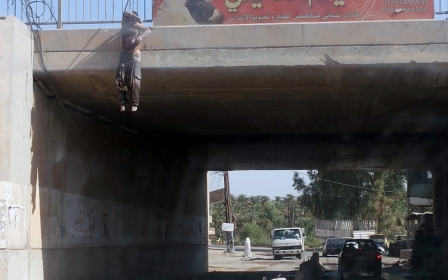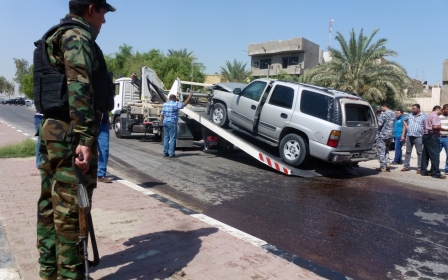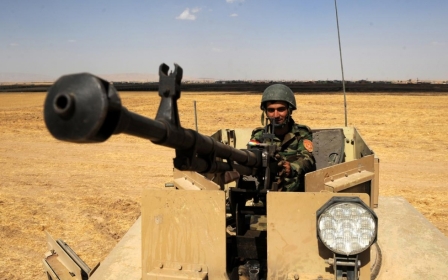Iraq army kills 17 in anti-militant raid

An Iraqi government raid on militant targets in a flashpoint town southwest of Baghdad killed 17 people on Monday, including at least three civilians, medical and tribal sources said.
"Bombardment targeted the Fadhiyya district at 1:00 am," Sheikh Mohammad al-Janabi, a tribal chief from Jurf al-Sakhr, a town 60 kilometres (40 miles) from Baghdad, told AFP.
Janabi said two women and a child were among the dead, a toll confirmed by a doctor at the main hospital in nearby Iskandariyah.
Both said that 12 people were also wounded and that some of them were transferred to the militant stronghold of Fallujah in the neighbouring province of Anbar.
Some of the casualties of the raid may have been fighters from the Islamic State or one of its allied Sunni militant groups, although none of the sources could say how many.
A lieutenant in the Iraqi army said "the Iraqi forces used a variety of weapons to target militant bases in Jurf al-Sakhr overnight."
The mainly Sunni town, which lies in the north of Babil province, is the scene of almost daily fighting between pro-government forces and Sunni militants.
Islamic State militants launched a sweeping offensive in northern Iraq on 9 June, conquering the second city Mosul and large parts of the country's Sunni heartland.
Jurf al-Sakhr lies on the edge of what became known during a previous wave of sectarian bloodshed eight years ago as the "triangle of death."
The army and allied Shiite militia such as Asaib Ahl al-Haq take up positions in the town during the day but often pull back at night, which allows militants to plant roadside bombs.
The loss of Jurf al-Sakhr would threaten government control over one of only two main roads linking Baghdad to the southern Shiite heartland, including the holy cities of Karbala and Najaf.
New MEE newsletter: Jerusalem Dispatch
Sign up to get the latest insights and analysis on Israel-Palestine, alongside Turkey Unpacked and other MEE newsletters
Middle East Eye delivers independent and unrivalled coverage and analysis of the Middle East, North Africa and beyond. To learn more about republishing this content and the associated fees, please fill out this form. More about MEE can be found here.




